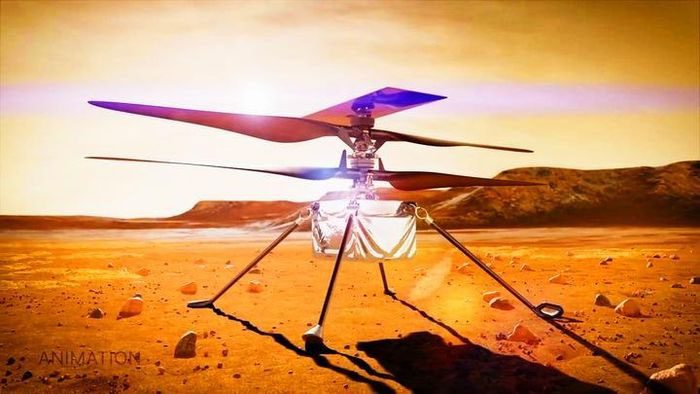India plans to send a helicopter to Mars, inspired by NASA’s Ingenuity helicopter, and it is expected to carry various instruments.
India’s first mission to the Red Planet, known as the Mars Orbiter Mission (MOM), also nicknamed “Mangalyaan”, was launched in November 2013 and entered orbit around Mars in September 2014. This spacecraft conducted scientific research in orbit around Mars for 8 years before losing contact in 2022.

India is planning to send a helicopter to Mars, inspired by NASA’s Ingenuity four-blade aircraft. (Photo: NASA)
However, the next Mars mission by the Indian Space Research Organisation (ISRO) will be much more ambitious. It may include a helicopter, following in the footsteps of NASA’s pioneering Ingenuity unmanned helicopter. ISRO is currently researching this idea, asserting that the vehicle will fly alongside India’s Mars lander, which is expected to launch in the early 2030s.
Jayadev Pradeep, a scientist at the Cosmic Physics Laboratory at the Vikram Sarabhai Space Centre, stated in a recent webinar that the helicopter planned for the next Mars landing mission will carry a specific set of instruments to explore the planet from the air.
The plan is for this unmanned helicopter to carry a temperature sensor, humidity sensor, pressure sensor, wind speed sensor, electric field sensor, tracking sensor, and dust sensor to measure and study the characteristics of Mars’ atmosphere.
The advantage is that this aerial vehicle has the capability to fly up to 100 meters above the surface of Mars to assess and study the atmosphere. In comparison, NASA’s Ingenuity helicopter reached a maximum altitude of only 24 meters during a total flight time of over 2 hours, covering a horizontal distance of approximately 17km.
Ingenuity helicopter landed alongside NASA’s Perseverance rover in the Jezero crater on Mars in February 2021. It demonstrated that helicopter flights are feasible in the thin atmosphere of Mars and exceeded many expectations.
Initially, the primary mission of Ingenuity was to conduct 5 technology demonstration flights, but the helicopter ultimately completed up to 72 flights on Mars before being permanently grounded due to rotor damage in January 2024.





















































